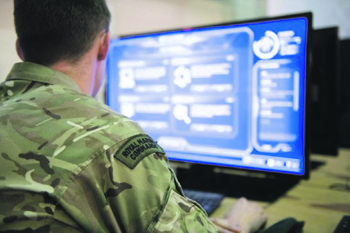Under these conditions, nuclear deterrence remains a key element in ensuring Russia's military security, said Valery Gerasimov, chief of the General staff of the Russian Armed forces
MOSCOW, December 24. /TASS/. The spread of military confrontation to cyberspace and outer space increases the risks of interference in control systems and the use of nuclear weapons, said on Thursday the chief of the General staff of the Armed forces of the Russian Federation, army General Valery Gerasimov at a briefing for foreign attaches.
"The military confrontation extends to cyberspace and outer space, as a result, the risks of incidents due to interference in the functioning of control systems and ensuring the use of nuclear weapons increase," Gerasimov said.
He stressed that in these conditions, nuclear deterrence remains a key element of ensuring the military security of the Russian Federation.
The chief of the General staff recalled that official views on the essence of nuclear deterrence are set out in the" Fundamentals of the state policy of the Russian Federation in the field of nuclear deterrence", Russian policy in this area is"purely defensive and aimed at maintaining the potential of nuclear forces at a sufficient level for deterrence."
"Nuclear weapons are considered as a means of forcing a potential enemy to refuse to unleash aggression against our country. Statements about the alleged concept of "escalation for de-escalation" adopted by the armed forces are speculation. There is nothing like this in the Russian documents, " the General stressed.
According to him, in determining Russia's approaches to nuclear deterrence, special attention was paid to the implementation of international obligations in the field of arms control. "Today, the elements of control are contained only in the START Treaty, which expires on February 5 next year. After this date, neither Russia nor the United States will have any restrictions. We consider this situation as difficult, but surmountable, " the Chief of the General Staff said.

